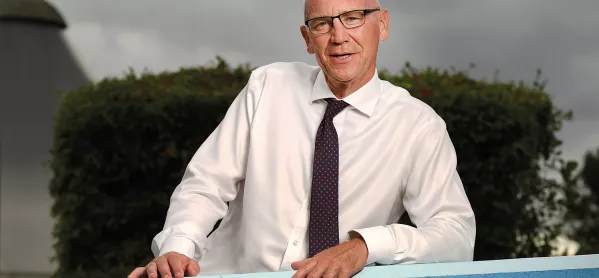All schools must face rigorous external accountability and regulation, exceeded only by a culture of the highest expectations within schools themselves: this I truly believe.
Accountability must, however, be proportionate, credible and above all else, trusted by those who are made accountable.
Ofsted’s newly confirmed framework does not pass these tests.
Leaders at the standards authority have made some welcome changes. The emphasis on pupils’ learning, personal development and extra-curricular opportunities is very positive. So is the genuinely improved tone and empathetic rhetoric being adopted.
Sadly though, an under-resourced inspectorate has set up a framework that allows schools to be judged in a matter of hours. This has led to an unsatisfactory new regulatory provision which does not serve parents or the system well enough.
The framework prompts many more questions than it answers. In short, it’s a mass of contradictions. Those in power have missed an opportunity to really act upon the views of headteachers and teachers who are tasked to deliver high quality education to every pupil in England at a time of enormous challenge.
Against a background of great fanfare we were told that the new framework would emphasise the importance of teaching and learning and curricular delivery – hurrah. Yet in the first meaningful clause of Ofsted’s 97-page Framework, we learn the following:
“We use risk assessment to ensure that our approach to inspection is proportionate. In our risk assessment, we analyse: progress and attainment data from the DfE.”
I take back that hurrah.
And so it goes on.
Under the new framework, schools will be judged in just a few hours by just a few inspectors. Snap judgements relating to complex areas such as quality of education, behaviour and the personal development of hundreds, and at times thousands, of pupils in a school will be made. On top of this, safeguarding – in all of its hugely multi-faceted guises – will be assessed.
Then schools will get a blunt grading and short report.
More contradictions arise as "outstanding" schools remain exempt from inspection, while "inadequate" schools are found by inspection teams. As one parent pointed out, “If a school needs to be put into special measures, isn’t that a bit late?”
We are informed that gradings are important to parents and that Ofsted ensures that all of its work is evidence led. If that is the case, when will Ofsted provide details to schools, parents and the wider public about crucial contextual factors that influence how well a school can perform?
These are just a few of the questions that arise:
If a school is located in an area where it cannot attract high-quality teachers in enough numbers, should it be penalised by a low Ofsted grading?
Does school funding affect a school’s provision and capacity – if it does, how will Ofsted judge schools that receive hugely variable levels of funding?
If a school is located in an authority where children’s services are graded as requiring improvement or inadequate, should that school’s safeguarding or other personal development areas be judged in the same way as a school that gains outstanding external support?
If a school serves a catchment area with disproportionately high numbers of SEND or disadvantaged pupils, should it be judged on exactly the same criteria as other schools which have markedly different intakes?
The list could go on, fuelling the mounting contradictions and the mounting frustrations felt within our profession.
We are told that our profession is valued and trusted. We are also told that we are being listened to. Ofsted’s recent consultation gave little scope for meaningful responses and change, although the profession shouted loud and clear about what it wants and what it needs.
We need an agile and sensitive system of accountability, especially at a time when recruitment and retention is at an absolute premium. We need an accountability system that promotes improvement and self-regulation which is then backed by proportionate external scrutiny. And, most of all, we need an accountability system that is free from contradictions and trusted by every stakeholder.
As with so many things that blight our education system, we get the feeling that there is an overwhelming sense of denial underpinning the most important policy decisions.
And of course, that brings us to the most concerning contradiction of all; as we all know that “the thing about denial is that is doesn’t feel like denial when it’s going on.”
Jules White is the headteacher of Tanbridge House School in West Sussex, and founder of the WorthLess? campaign for more school funding.




